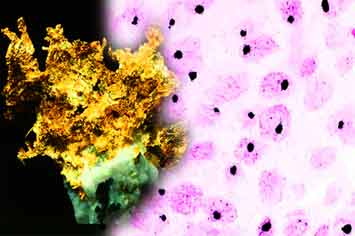|
The information contained in this website was deliberately formulated to be generally understandable. To achieve this, popular rather than strictly scientific ways of expression were used.
For strictly scientifically formulated texts, kindly read the manuscripts contained in the list of publications (at the bottom of the "Curriculum" page, following the CV). |
Adverse effects of certain environmental factors are often difficult to prove scientifically. This is not only a matter of the research approach applied: If a scientist "finds out something negative" in specific areas, it almost always means he has to deal with positions of financially well-hedged parties of economic interest, which often concentrate on income rather than on health of human beings and nature. For this reason, it is necessary for scientists publishing in environmental medicine, to use the word "may" disproportionately often in their texts - even if they know that they are dealing with rather well-documented facts. Much can be recognized by careful selection of methodology. In environmental medicine, influences often become visible when specific immune parameters and stress reactions are tested. In nutritional medicine, an area that in part can also be understood as environmental medicine, the best possible research approach too is the factor determining success - for instance, if one wants to find out if and why organic food is healthier than conventional food. By the way: "organic" is not just a matter of nutrition. It is also a very explosive ethical, climate and spirituality relevant question. |
|---|
This site contains information mainly related to the following topics:
-
The new dimension of health: Holistic protection against incriminating environmental influences
-
Food: "organic" versus "conventional"; unwanted constituents, and their influences on health
Prevention: Despite all: how to stay healthy and find a really positive lifestyle
Ethics and dignity for humans, animals and the environment
Life style medicine
-
Spirituality and Science
Information on the question "What happens after death?" can be found in the webpages of my wife Ursula Demarmels on Spiritual Regression. Since nearly 35 years, Ursula has guided more than 4.500 clients into their prior lives and the between-lives (afterlife). She is also renommated reincarnation expert in many TV documentaries on historically verfifiable reincarnation.

